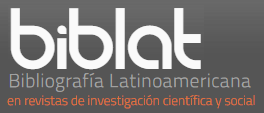Cellular autophagy in pathological processes
DOI:
https://doi.org/10.5433/1679-0367.2014v35n1p125Keywords:
Autophagy, Infectious diseases, Neurodegenerative diseases, CancerAbstract
Current research investigating autophagy, a complex catabolic process, indicates a vital role for this phenomenon. It is known that during the "self-eating" process, cell isolates portions of the cytoplasm or whole organelles in structures called autophagolisosomes, which are degraded by lysosomal hydrolases into macromolecules as an energy source during different situations. Autophagy is also responsible for cellular "self-cleaning" by removal of malformed macromolecular aggregates. Several recent studies have shown that during stress such as malnutrition or lack of oxygen and neurodegenerative diseases and cancer, autophagy plays an important role. In this review, structural and molecular aspects of autophagy, current detection techniques and their involvement in pathological processes, with emphasis in infectious diseases, are discussed. Bacteria such as Streptococcus pyogenes, Salmonella enterica, Listeria monocytogenes and hepatitis C virus and herpes simplex virus induce autophagy in infected cells. Leishmania amazonensis a parasite of macrophages causes cutaneous leishmaniasis in humans, induce autophagy in infected cells and skin tissue of experimental model; autophagy inhibitor treatment reduces the macrophage parasite load. These results provide evidences that autophagy modulation is important in the course of various infectious diseases, and perspectives of autophagy modulators treatments against various diseases in humans.Downloads
Downloads
Published
How to Cite
Issue
Section
License
Copyright (c) 2015 Semina: Ciências Biológicas e da Saúde

This work is licensed under a Creative Commons Attribution-NonCommercial 4.0 International License.
adopts the CC-BY-NC license for its publications, the copyright being held by the author, in cases of republication we recommend that authors indicate first publication in this journal.
This license allows you to copy and redistribute the material in any medium or format, remix, transform and develop the material, as long as it is not for commercial purposes. And due credit must be given to the creator.
The opinions expressed by the authors of the articles are their sole responsibility.
The magazine reserves the right to make normative, orthographic and grammatical changes to the originals in order to maintain the cultured standard of the language and the credibility of the vehicle. However, it will respect the writing style of the authors. Changes, corrections or suggestions of a conceptual nature will be sent to the authors when necessary.
This Journal is licensed with a license Creative Commons Assignment-NonCommercial 4.0 International.

















